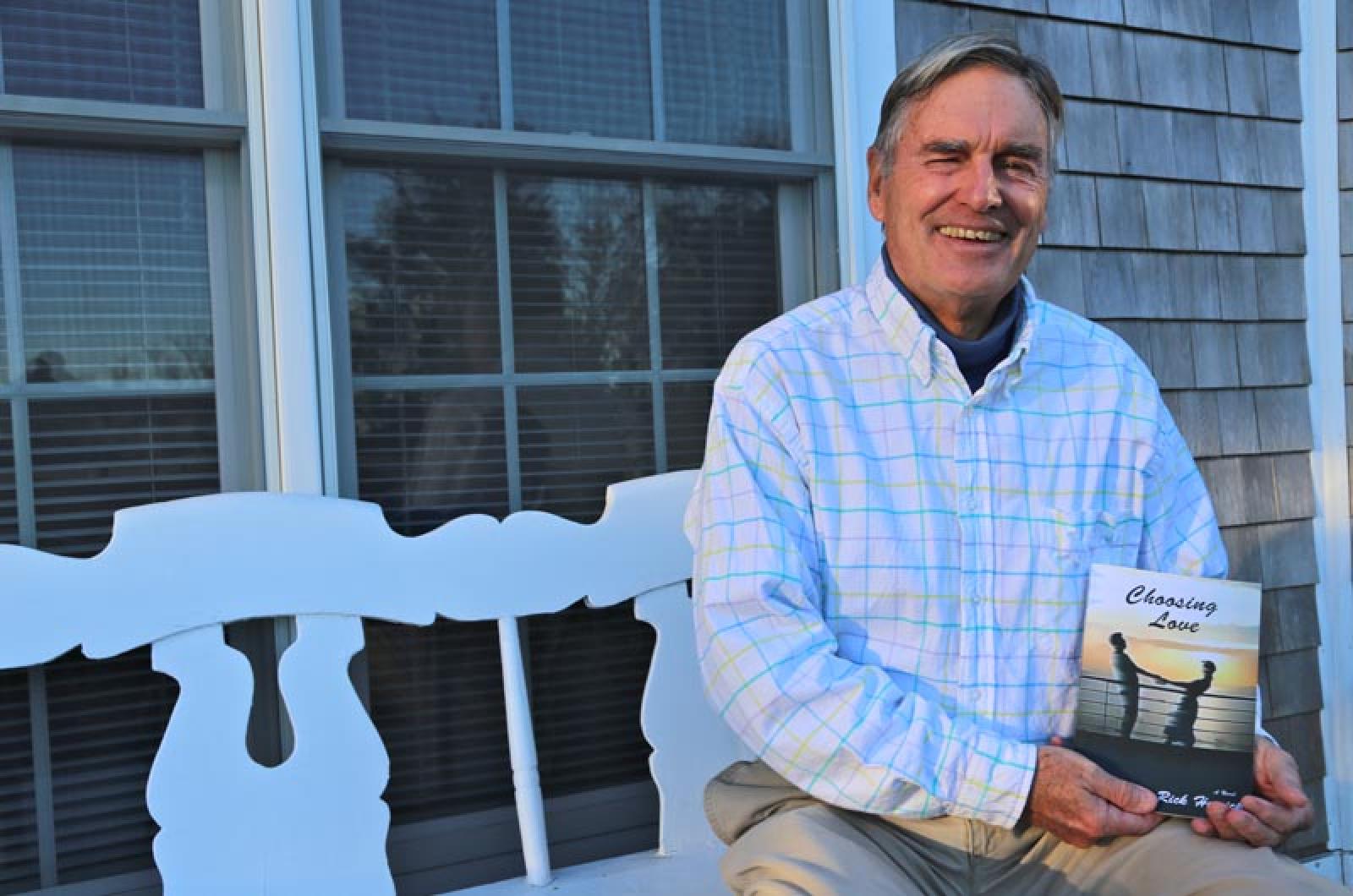At age 21 Rick Herrick wrote a letter to Princeton University’s religion department declining his acceptance into their New Testament PhD program.
“After a few sleepless nights, I decided I just couldn’t do it,” Mr. Herrick said recently during an interview at his East Chop home. Young Mr. Herrick had excitedly bought books recommended by his professor and read them fervently over the summer. He set up an apartment near the university, had a side job, was ready to go. But one of these books really made his stomach churn. The book described how the writers of the gospel disagreed about where the resurrection of Jesus took place. According to Matthew it was on a mountain in Galilee, but according to Luke it took place in a home in Jerusalem.
“That’s a huge discrepancy!” Mr. Herrick said. “I couldn’t believe they could make that kind of mistake. It haunted me.”
Mr. Herrick ended up going to Tulane University where he earned a PhD in political science. Later he became a professor at the University of North Carolina at Pembroke. While setting up his office for the first day of classes at UNC, he pulled out from storage a dusty box of his old religion books on the New Testament, Old Testament, Christian theology and history of religion. Six hours later he had not moved from his reading position, with piles of books still surrounding him.
“I was in love with those books. I hadn’t looked at them in years. Time totally disappeared. I didn’t leave the office to pee, I didn’t get lunch. And I am a person who is very regular on lunch. But I didn’t move for six hours! And when I finally put every book on the shelf, it was with love. And I never got over that.”
Which is why he has spent the greater part of his life reading (he claims more than 500 books), researching, and now writing about the Bible and the Christian religion.
Mr. Herrick is retired now but his passion for the subject has not lessened. His latest novel, Choosing Love, uses relatable characters and dialogue to carry the message of what it means to be a religious person versus a spiritual person. It has all the hallmarks of a traditional novel — a love story, corporate scandal, heated trial, family problems. And by alternating between the two main characters, free-spirited Karen Hathaway and her fundamentalist Christian father, Mr. Herrick works to distinguish a spiritual person from a religious person through their actions, choices and hardships.
“It’s very difficult for humans to choose love in intense situations that are conflicted. But if you want to be a spiritual person that is the way you have to live, and I would argue that it makes all the difference in your life.”
The current book is a continuation of Mr. Herrick’s themes but a departure in style. His earlier books took on the subject of religion more directly. An earlier book called The Case Against Evangelical Christianity, is, well, just that.
“The whole thesis is to point out that the Bible is a very human book. Written by humans, with all kinds of mistakes. There is no such thing as the word of God.”
A few weeks ago Mr. Herrick finished an early draft of another book which stresses that the Bible is not a historical document and should not be treated as one.
“It starts with Jesus under a waterfall naked, with his eight-and-a-half-month pregnant wife,” Mr. Herrick said. “A very inflammatory way to start a book,” he added, proudly.
Choosing Love is a bit less in-your-face, yet still unashamedly addresses topics such as premarital sex and the relationship between religion and government.
When asked his current denomination, Mr. Herrick laughed. Technically, he is a Mainline Protestant. He was ordained a deacon in the Presbyterian church, taught adult classes in the Episcopal church, and has read the New Testament in Greek.
“A lot of people wouldn’t consider me a Christian, but yes I am a Christian. If that means living the Sermon on the Mount and not believing that Jesus is going to take me to heaven.”
While Mr. Herrick takes issue with the historical accuracy of the Bible and how it is taught, he still considers Jesus an inspirational figure.
“I think we need to focus Christianity away from self and more towards the ethical teachings of Jesus,” he added. “They still give me goosebumps. Every time I read the Sermon on the Mount, I say, wow, that is some guy.”






Comments
Comment policy »